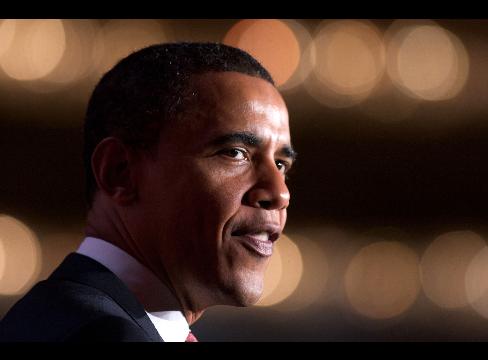
On the eve of the announcement of Barack Obama’s running mate, many hope that the Democratic Presidential candidate will choose someone who will bring extensive foreign policy experience and knowledge. This would serve to appease those who (people are who, things are that) believe that the Senator himself does meet those qualifications. In recent weeks, he visited several European countries and Middle Eastern countries in an effort to silence his critics and to demonstrate he does have the qualifications to meet with foreign dignitaries
Barack Obama met with the Israeli prime minister which is sure to be a strategic move to increase his popularity among Jewish voters which for the most part supported Hillary Clinton during the primaries. In the same fashion some wonder if Senator Obama will soon visit the homeland of some of the members of another important voting bloc, Latinos.
John McCain has recently visited Colombia and Mexico while Senator Obama has yet to set foot on Latin American soil. Many argue that this could prove disadvantageous to Senator Obama since it could send a signal to Latino voters that he is not genuinely interested in strengthening relations with Latin America.
According to a recent column that appeared in the Los Angeles based Spanish language newspaper, La Opinion, Obama needs to begin now if he is to strengthen his relationship with Latin American leaders. It states that he cannot afford to ignore the roots of the more than 40 million Latinos living in the United States. It goes on to say that any relationship-building he can achieve with Latin American presidents will enhance his image within the growing Latino electorate, where his support is strong but not invulnerable to erosion.”
This poses a very interesting question, are all Latinos interested in the next President’s relationship with Latin America? How strong are the ties of the 40 million US Latinos to their countries of ancestry? For those who have been born and raised in the United States for one or more generations, the ties to the home country of their grandparents or great-parents may not be as strong. But to those who are first generation or recently naturalized citizens who lived a large part of their lives in Latin America this could indeed be an issue of vital importance. At the same time, foreign policy issues pertinent to Latin America are of value to Latinos since certain issues like immigration cannot be properly addressed without the involvement of our foreign allies. However, this also means that we must assume that all Latinos are interested in the immigration issues.
Perhaps our foreign policy towards Latin American and immigration issues are important to Latinos as a group; the question is whether they take precedence over other urgent issues, such as the economy. When you consider Americans are facing economic hardships and US Latinos have been disproportionately affected by high unemployment rates, perhaps the most urgent matter should not be which of the candidates visited Latin America during the campaign season. Other issues like the war in Iraq also rank high on the list of concerns for Latinos. Today, John Trasvina Chairman of the National Hispanic Leadership Agenda declared that Latinos “are overrepresented in the military; many are immigrants who are fighting for our country before it becomes their country.” This in turn could mean disproportionately high numbers of casualties for the Latino community, with such staggering information it seems questionable to choose a candidate based solely on his number of visits to Latin America. In fact, the most recent polls by the Pew Hispanic Center revealed that education, the cost of living, jobs and health care were ranked the most pressing issues by Latino voters nationwide.
One of the main challenges for those courting the Latino vote is the fact that Latinos are not a homogenous group. The messaging that is needed to attract the Latino youth vote is not necessarily the same one that would be used to attract the vote of older Latinos. The needs and worries of first generation Latinos are not necessarily the same one of younger Latinos or those whose families emigrated long ago. Candidates need to keep this in mind when wooing Latinos. Perhaps this is something Hillary Clinton’s campaign understood very well, and it could indeed explain the overwhelming success she had with Latinos of all ages and backgrounds. Proof of this is that Hillary Clinton won the Latino vote on Super Tuesday by a 2-to-1 margin in key states such as New York, California and New Jersey. Let’s hope that the litmus test for choosing a president that is in tune to the needs of Latinos involves more than his number of his visits to Latin America.

you said that very well , and i cant say anhtying to improve on it so gratz and keep spreading the good word